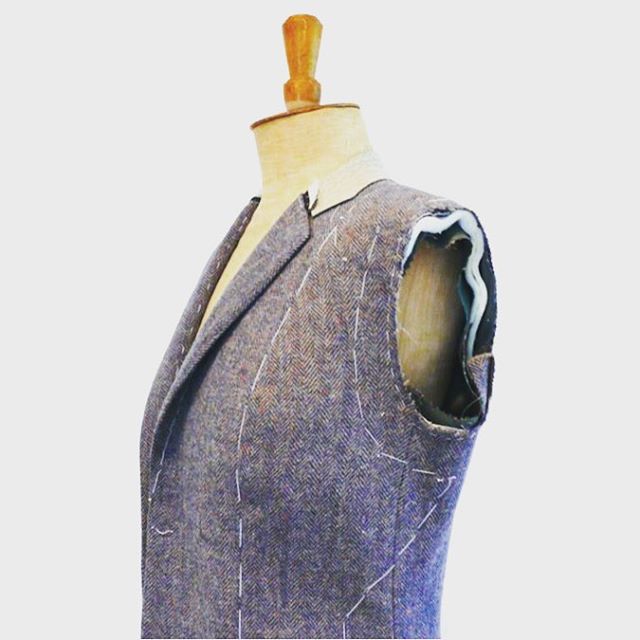As a bespoke tailor, I make garments by hand, the old-fashioned way. These days I am often asked “what is the point of handcraft when pretty much everything can be produced using industrial, efficient methods with the same result?”
Really? Think about this: when people are asked to name their favourite things or essentials, as shown by the wonderful With Love Project, they rarely choose objects that have been produced on a mass scale. They favour things that have been manufactured in ways that aren’t geared up to maximum efficiency, often made from natural materials. Let’s say this again: people feel drawn to things that have been ‘made’, rather than ‘produced’ – I call them ‘real things’.
But why this attachment to objects that seem to stem from a past era of ‘making’? In our modern world, which is driven by one overriding objective – to save time – this seems paradoxical. But here’s the thing: handcraft is NOT about saving time, it is about SPENDING time, in a purposeful way.
If done well, both craftsperson and customer will enjoy the generosity of time invested in an object. A maker who is passionate about their craft does not notice the hours passing by; they will immerse themselves in every moment of their creating something spectacular. The customer, on the other hand, finds enjoyment in the knowledge of having acquired a unique object, crafted without time constraints and coming with a personal history attached. Efficiency does not come into this relationship; in fact, it would prohibit both of these notions.
Is to be able to throw efficiency overboard true luxury? I believe so but the term takes on a more essential meaning than its classic definition as a scarce good only a fortunate few can afford: leaving the need for efficiency behind allows all of us to become grounded again in a world of breathtaking but often incomprehensible and all-encompassing change. The ‘real things’ have a way of bestowing a sense of calm, of reason – a powerful antidote to consumption overload.

